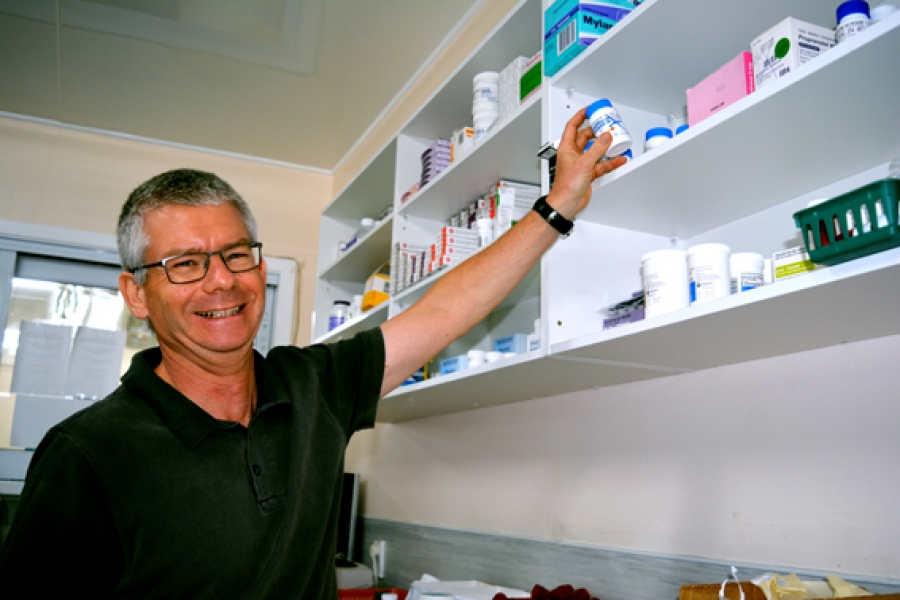Pharmacies clarify key guidelines on international prescriptions
Tuesday 17 January 2023 | Written by Losirene Lacanivalu | Published in Health, National

Cook Islands Ministry of Health chief pharmacist, Andrew Orange. 16080910
The Cook Islands Pharmacy Board has guidelines for the supply of medicines from overseas prescriptions, says a leading Rarotonga pharmacy.
CITC general manager, Gaye Whitta has clarified that CITC pharmacy can only accept overseas prescriptions to issue an emergency supply for up to two weeks to ensure visitors to the island have access to their regular medicines.
This comes after a retiree questioned why New Zealand prescriptions were not accepted by local pharmacies.
Whitta says people who live here in the Cook Islands, or visitors with an extended stay who need prescription medicines, will need to see a doctor here as per the Pharmacy Board guidelines.
“We believe this is best practice to have a regular health check-up and consultation with a doctor before an extended supply of medicine is dispensed to ensure there are no issues or changes that should be addressed.
“Something that cannot be achieved by simply requesting a prescription to be sent to our Pharmacy from overseas,” Whitta said.
She said it is also important that a healthcare provider in Cook Islands, whether it be a private doctor or Te Marae Ora (TMO), have a record of current medicines being taken by residents in-case of an emergency.
“We do not refuse supply of medicines to people who need them, we do our best to liaise with doctors both overseas and in Rarotonga to ensure our customers’ medicine needs are taken care of within the set guidelines,” she added.
TMO chief pharmacist, Andrew Orange explains that it is essential that pharmacy staff are able to contact a prescriber to validate prescription details or check clinical information to ensure patient safety.
“This is very difficult to do for an overseas prescriber,” Orange said.
He said that New Zealand prescribers are not registered to practice in the Cook Islands and New Zealand registration does not apply to the Cook Islands.
“So a prescription from New Zealand or another overseas country is not valid here.
“The bottom line is that it is illegal for pharmacies to dispense prescriptions if they are not written by a Cook Islands Registered Practitioner.”
The Ministry of Health (Pharmacy and Therapeutic Products) Regulations 2013, in Regulation 27(2), states:
“No person may sell or supply, any prescription medicine otherwise than -
(a) Under a prescription given by an authorised prescriber; or
(b) In accordance with a standing order.”
Orange further explains that the definition of an “authorised prescriber” in these Regulations is: “a registered medical practitioner or other health professional authorised to prescribe medicines under these Regulations or any approved standards and codes of practice, and in the case of the prescription of medicines to animals, includes a veterinarian”.
A “medical practitioner” in the Regulation is: “a person who is duly registered as such under any applicable law in the Cook Islands”.
Orange said: “Pharmacies in the Cook Islands can only
accept scripts from Cook Islands Registered Medical Practitioners. The same
principle can be applied to Cook Islands Nurse Practitioners who TMO has
authorised to prescribe.”
“We would only dispense prescription medicines from Cook Islands Registered
Nurse Practitioners with prescribing rights, not Nurse Practitioners who are
not registered to practice in the Cook Islands.”




































